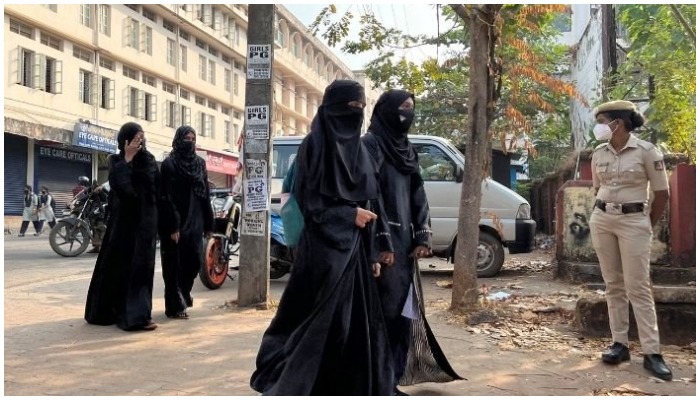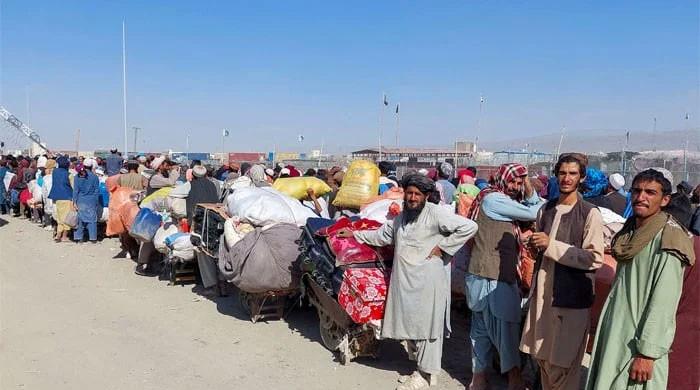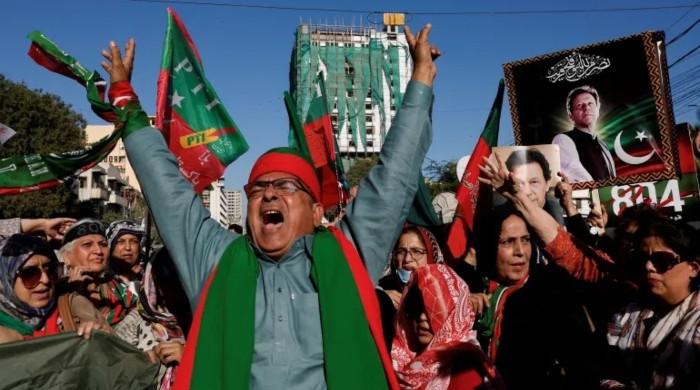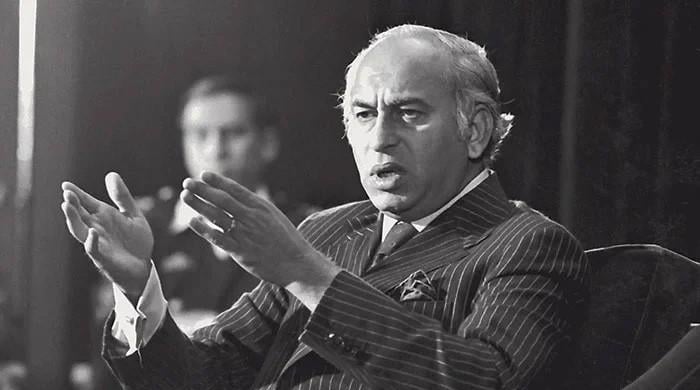Pakistan concerned over hijab ban by Indian court: FO
Foreign Office says hijab ban has failed to uphold principle of freedom to religious practices and impinges on human rights
March 16, 2022

- FO says hijab ban has failed to uphold principle of freedom to religious practices and impinges on human rights.
- Says decision marks a fresh low in relentless anti-Muslim campaign
- Pakistan urges Indian govt to ensure safety, security and protection of Muslims and other minorities.
ISLAMABAD: Pakistan on Tuesday expressed serious concern over the decision of the High Court of Indian State of Karnataka restricting Muslim students from wearing hijab in educational institutions.
“The decision manifestly has failed to uphold the principle of freedom to religious practices and impinges on the human rights,” the Foreign Office said in a statement issued on Tuesday.
“Equally sad is the fact that the judiciary in India which is expected to act as a bulwark against dehumanisation, stigmatisation and discrimination against minorities has completely failed to uphold the principles of justice and equality,” it added.
“This decision marks a fresh low in the relentless anti-Muslim campaign where even the pretext of secularism is being weaponised to target Muslims.”
“It is feared that the flawed ruling by the High Court would fast track the pace of marginalisation of the minorities, especially Muslims and further embolden the Hindu-RSS zealots to target them with impunity,” the statement remarked.
According to the statement, “It is deeply concerning that the malicious trend of characterising Muslims as ‘others’ or ‘20%’ by prominent BJP leaders which was continuing with appalling impunity is now also being translated into decisions by the judiciary.”
The discriminatory Citizenship Amendment Act (CAA) and the grossly injudicious Indian Supreme Court judgement in the Babri mosque case were not distant memories, the statement recalled.
India, under its current dispensation, was oblivious to the fact that its so-called ‘secular’ credentials were fast waning much to the detriment of its minorities.
“Pakistan strongly urges the Indian government to ensure safety, security and protection of minorities, particularly Muslims, and their right to practice religion.”
“We also call upon the international community, the United Nations and relevant international organisations to play their role in prevailing upon India to arrest the tide of majoritarianism and discrimination in India and to ensure the protection of all minorities, especially Muslims,” the statement concluded.
India court maintains Karnataka state ban on hijab in class
An Indian court on Tuesday upheld a ban on the hijab in class in the state of Karnataka, a ruling that could set a precedent for the rest of the country which has a big Muslim minority.
The ban last month by the southern state sparked protests by Muslim students and parents, and counter-protests by Hindu students. The dispute has led to criticism that Muslims in the country are being further marginalised.
"We are of the considered opinion that wearing of hijab by Muslim women does not form a part of essential religious practice," Chief Justice Ritu Raj Awasthi of the High Court of Karnataka said in the judgement.
He said the government had the power to prescribe uniform guidelines, dismissing various petitions challenging the order.
Ahead of the verdict, Karnataka authorities announced closures of schools and colleges and imposed restrictions on public gatherings in some parts of the state to prevent potential trouble.
Last month, Federal Home Minister Amit Shah said he preferred students sticking to school uniforms instead of any religious attire.
Students who had challenged the ban in court had said wearing the hijab was a fundamental right guaranteed under India's constitution and an essential practice of Islam. Reuters could not immediately contact the challengers.
Karnataka's ban had led to protests in some other parts of the country too and drew criticism from the United States and the Organisation of Islamic Cooperation.
Hijab row
Earlier this year, three Muslim students in India were barred from entering the classroom after they went to college wearing headscarves.
“When we arrived at the door of the classroom, the teacher said we cannot enter with the hijab,” one of the students told Al Jazeera.
“She asked us to remove it.”
A government-run women’s college in Udupi district of India’s Karnataka state in the south has forced a group of six Muslim students to sit outside the classroom because the college administration alleges they are "defying the rules" since hijab is not part of the uniform.
The girls told Al Jazeera the hijab is “part of their faith” and wearing it is “their right guaranteed under the law”.
The college administration has done their best to pressurise them but the girls have maintained a defiant stance.
Since December 31, the hijabi girls are being marked absent from their classes even after attending college daily.
“We are not going to budge, no way,” Aliya Assadi, who is a part of the group, told Al Jazeera.
A photo has gone viral on social media of the students clad in hijab and college dresses sitting on the steps outside their classroom.
“It is because of this photo that our issue got highlighted in the media,” said Assadi.











